
High TILs may predict which patients with early HER2-positive breast cancer may have a reduced risk for disease relapse or death with Herceptin treatment.

High TILs may predict which patients with early HER2-positive breast cancer may have a reduced risk for disease relapse or death with Herceptin treatment.
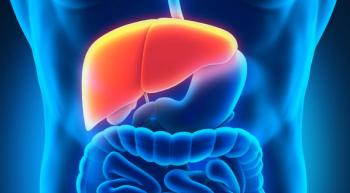
Patients with intermediate-stage liver cancer may benefit from receiving a Lenvima-Keytruda combination with transarterial chemoembolization.

Patients with metastatic, castration-resistant prostate cancer saw significant benefits from the combination of Xofigo and Xtandi.

Patients with previously untreated, high-risk locally advanced cervical cancer experienced improved survival when treated with Keytruda plus chemoradiotherapy.

Study findings were mixed regarding the postsurgical combination of Keytruda and chemotherapy with or without radiation among patients with high-risk endometrial cancer.

Rybrevant plus chemotherapy improved overall survival versus chemo alone in EGFR-mutant advanced non-small cell lung cancer after disease progression.

Patients with HER2-positive breast cancer benefitted from treatment with Enhertu regardless of brain metastasis.

Among patients with previously treated advanced clear cell renal cell carcinoma (RCC) Welireg continued to show some benefits, though not to overall survival.

Patients with NSCLC did not see a disease-free survival benefit with Imfinzi after surgery compared with taking a placebo.
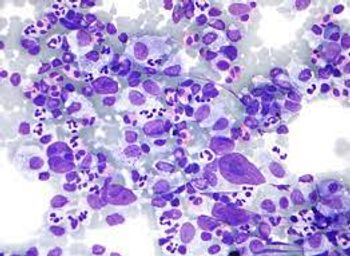
A treatment combination that includes Velcade and Rituxan helps improve responses and the safety profile in marginal zone lymphoma, according to a phase 2 trial.

Datopotamab deruxtecan elicited encouraging responses in patients with heavily pretreated non–small cell lung cancer harboring actionable genomic alterations.

The Welireg-Cabometyx treatment combination demonstrated anti-tumor activity for some patients with clear cell renal carcinoma, according to a phase 2 trial.
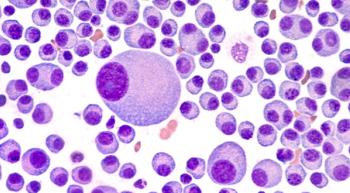
Findings from a phase 2 trial showed improvements in relapse-free survival with an mRNA vaccine plus Keytruda compared with Keytruda alone in patients with high-risk resected melanoma.
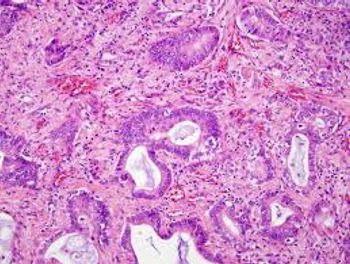
Patients with extensive-stage small cell lung cancer responded well to the treatment of Trodelvy, according to preliminary results from a phase 2 trial.

A phase 2 study evaluated meaningful activity from lifileucel for patients with advanced mucosal melanoma who experienced disease progression on immune checkpoint inhibitors.

CURE® editors discuss data from the European Society of Medical Oncology Annual Congress, and how it could lead to new therapies being approved.
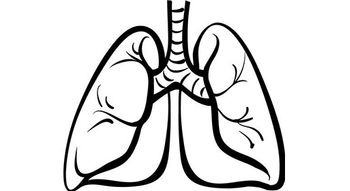
Jemperli plus chemotherapy demonstrated improvement in overall survival compared with Keytruda and chemotherapy in patients with treatment-naïve, nonsquamous non–small cell lung cancer.

Treatment with Tecentriq plus Zejula and chemotherapy did not offer better outcomes to patients with recurrent ovarian cancer, according to results from a phase 3 trial.
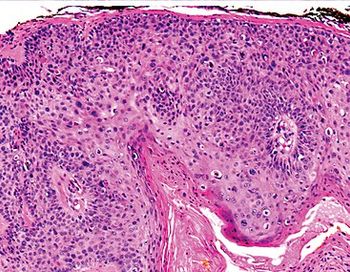
A recent phase 2 study showed promising survival improvements with neoadjuvant Libtayo in patients with cutaneous squamous cell carcinoma after a year and a half follow up.

Keytruda plus the combination of Herceptin and chemotherapy led to an improvement in progression-free survival versus placebo plus Herceptin and chemotherapy in the first-line treatment of some patients with metastatic HER2-positive gastric or gastroesophageal junction cancer.

Data presented at ESMO “provides strong evidence for an enhanced anti-cancer effect with the combination” of Pluvicto and Xtandi, according to one expert.
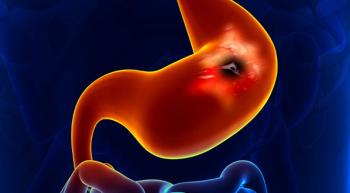
The addition of Imfinzi to a chemotherapy regimen called FLOT tended to boost pathologic complete response rates in patients with gastric or gastroesophageal junction cancer.

The addition of Keytruda to external beam radiotherapy and concurrent chemotherapy, followed by brachytherapy, resulted in statistically significant and clinically meaningful improvements in progression-free survival in patients with newly diagnosed, previously untreated, high-risk locally advanced cervical cancer.

Patients with HR-positive, HER2-negative high-risk early breast cancer tended to experience improved invasive disease and distant relapse-free survival after adding Verzenio to endocrine therapy.

Patients with previously treated advanced neuroendocrine tumors who received treatment with Cabometyx had improved progression-free survival compared with placebo.
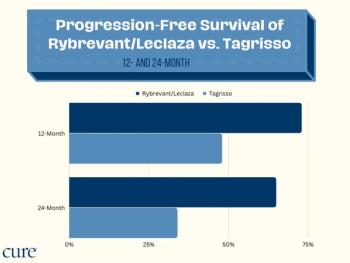
Patients with advanced non-small cell lung cancer with an EGFR mutation had a greater risk reduction for disease progression with frontline Rybrevant plus Leclaza compared with Tagrisso alone.

Central nervous system progression-free survival was shown to improve with Enhertu than with alternative treatments for patients with HER2-positive metastatic breast cancer and brain metastases.

Neoadjuvant Keytruda plus chemotherapy followed by adjuvant Keytruda plus endocrine therapy generated a statistically significant increase in pathologic complete response compared to pre-surgical placebo and chemotherapy followed by adjuvant Keytruda and endocrine therapy for patients with high-risk, early-stage, estrogen receptor–positive, HER2-negative breast cancer.

Patients with metastatic castration-resistant prostate cancer who were never treated with a taxane derived a progression-free survival benefit from treatment with Pluvicto.

Dato-DXd lengthened the average time it took patients with HR-positive, HER2-low or -negative metastatic breast cancer to experience disease progression, study results showed.